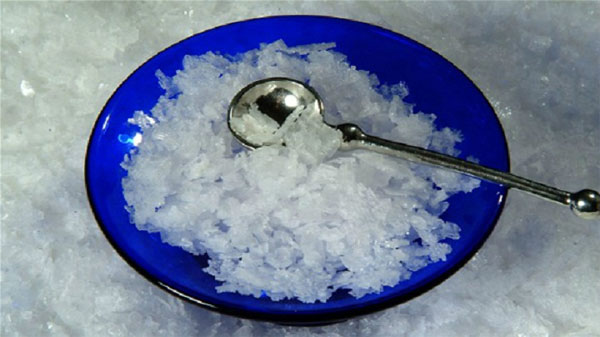Eating salt kills 1.6 million people every year
The absorption of too much salt, nearly twice the level recommended by the World Health Organization (WHO), has led to more than 1.6 million heart disease-related deaths worldwide each year, according to a new study.
>>>Health 'spend things' because of the habit of eating salty, eating light
The researchers made the conclusion after analyzing more than 205 surveys of sodium (salt) absorption in countries representing nearly three-quarters of the world's adult population.
The effects of sodium on blood pressure and the risk of cardiovascular disease have been determined in another separate study.

On average, every person in the world is absorbing nearly twice the amount of WHO recommended daily salt.(Photo: Alamy)
The team found that the average intake of sodium per person in 2010 was 3.95 grams / day, almost twice the level of 2 grams recommended by WHO. Experts calculate that a total of 1.65 million deaths per year are due to saltiness than the WHO recommended threshold.
Dr. Dariush Mozaffarian, head of research from Tufts University (USA), explains: "High intake of sodium has been shown to increase blood pressure , a major risk factor for cardiovascular diseases. , including heart disease and stroke, 1.65 million deaths are equivalent to nearly one-tenth of the world's total deaths stemming from cardiovascular causes. the country avoids this problem ".
Salt used in cooking, marinating food or processed products, is, of course, still the largest source of sodium in our diet .
According to a study published in the New England Journal of Medicine, Americans absorb an average of 3.6 grams of sodium per day. Meanwhile, this absorption rate worldwide varies from 2.18 grams / day in sub-Saharan Africa to 5.51 grams / day in Central Asia.
New research co-author, John Powles, from Cambridge University, stressed that he and his colleagues discovered that four-fifths of deaths globally could be attributed to eating. Salinity is more recommended in low and middle income countries. Programs to reduce sodium absorption, therefore, can provide a practical and economical solution, which helps reduce the number of premature deaths in adults worldwide.
- Eating too little salt is also harmful to health
- Are babies too young eating peanuts susceptible to allergies?
- How does eating too much salt harm your body?
- Are we eating plastic waste daily?
- The undersea city was built from a 250 million year salt mine
- Air pollution kills more than 5.5 million people every year
- How to make pure white salt without scum, crispy delicious standard science
- Reducing 3 grams of salt can help 92,000 people escape death each year
- Eating a lot of salt makes children get up late
- Little things to know about salt
- Eating too much salt increases the risk of death
- 400,000 Americans die each year from unscientific eating
 Green tea cleans teeth better than mouthwash?
Green tea cleans teeth better than mouthwash? Death kiss: This is why you should not let anyone kiss your baby's lips
Death kiss: This is why you should not let anyone kiss your baby's lips What is salmonellosis?
What is salmonellosis? Caution should be exercised when using aloe vera through eating and drinking
Caution should be exercised when using aloe vera through eating and drinking